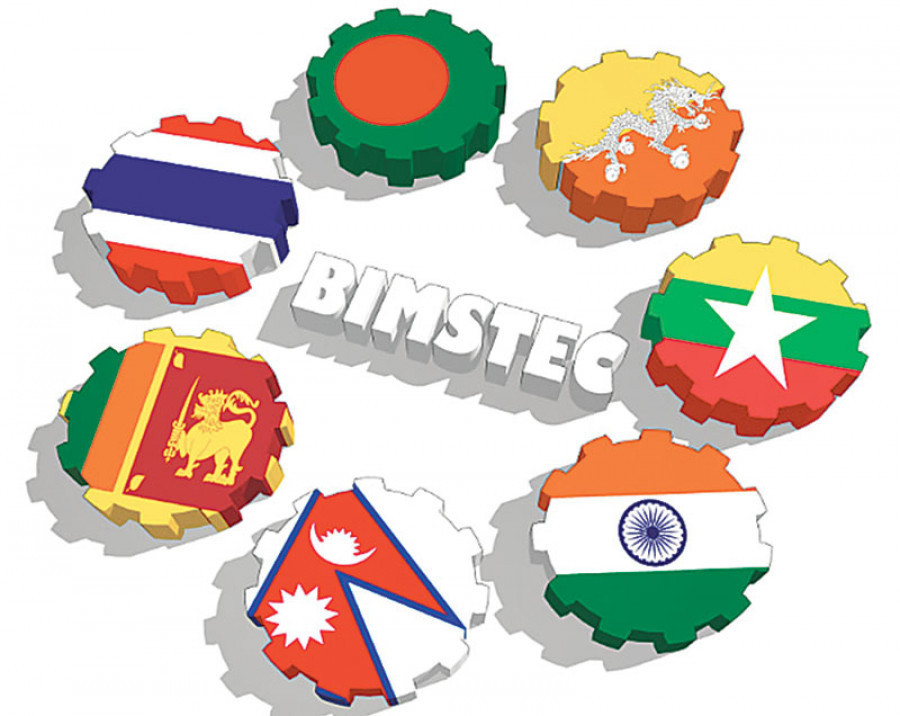National
BIMSTEC virtual meet most likely to avoid discussing Myanmar military suppression
The meeting is being held on the heels of one of the bloodiest days in the country, in which over 90 protesters were killed.
Anil Giri
The 17th BIMSTEC meeting of the foreign ministers–a virtual one, given the pandemic–on Thursday is likely to avoid discussing the brutal military suppression in Myanmar, despite calls to strongly raise the issue.
Ever since the Myanmar military seized power on February 1, it has launched violent crackdowns on democracy protesters, with over 500 killed as of now.
On March 27, more than 90 democracy protesters were killed in one of the bloodiest days since the coup, which was largely described by the world as a “day of shame”.
Pressure has been mounting on Nepal also to speak up, but the government, after issuing a statement on the day of the coup, has maintained silence even as military oppression continues in the South East Asian country.
Sri Lanka, which is hosting the virtual meeting, has already been criticised for inviting Myanmar. It has circulated the agendas of the meeting that incorporate finalising the BIMSTEC Charter and fixing the date of the fifth summit.
“We have strongly raised the ongoing repression in Myanmar at the United Nations Human Rights Council and made our position clear,” said Foreign Minister Pradeep Gyawali. “But I do not think Myanmar’s domestic issue is going to figure in the upcoming ministerial meeting.”
According to Gyawali, the agendas of the meeting have already been circulated and the meeting is going to finalise the text of the Bimstec Charter.
“No country has informed them yet that they are going to raise the issue,” said Gyawali. “Traditionally, BIMSTEC does not discuss domestic issues of any member states or any other bilateral issues between the two member states.”
However, Myanmar military suppression has lately drawn global attention and the recent bloodbath has received widespread condemnation. Not really from Nepal’s both immediate neighbours though, and one of them is a leading member state of BIMSTEC–India.
Ever since Narendra Modi returned to power for a second term, his government has shown interest in making a push for BIMSTEC rather than another regional bloc–South Asian Association for Regional Cooperation.
Except for Bhutan and Thailand, both India and China have their own larger stakes in BIMSTEC member states.
Experts say geo-political considerations cannot be ruled out when it comes to what’s going on in Myanmar.
“India’s interest to twist BIMSTEC as a ‘security and military’ block also plays an important role, so political differences could hardly become the matter in the regional platform,” said Sambhu Ram Simkhada, Nepal’s former permanent representative to the United Nations in Geneva. “None of the member states of BIMSTEC has come up with a strong statement on–or call to stop– Myanmar military’s brutal suppression of democracy protesters.”
In the morning of Saturday, the day more than 90 democracy protesters were killed, Myanmar generals organised a gala to mark the Armed Forces Day.
India and China were among the eight countries who sent their representatives to attend the parade.
“I do not see BIMSTEC members raising the issue of Myanmar military suppression,” Shimkhada told the Post. “Since India and China are the key players in Myanmar, I think the member states are watching them.”
According to Shimkhada, India is definitely not going to raise the Myanmar issue at the BIMSTEC platform, as it is trying to build the regional group as a military organisation.
India had organised the first ever BIMSTEC joint military exercise in 2018 where almost all member states except Nepal took part. Nepal was present in the exercise as an observer, saying that it will not participate in any kind of military alliance.
Calls have been growing in Nepal of late demanding that the government strongly condemn the military brutality in Myanmar and use its good office, in the capacity of a member of the UN Human Rights Council, to shore up global support to restore democracy in the South East Asian country.
“What is happening in Myanmar is against the global norms and values, so one should dare to raise the issue of the military’s violent crackdown on democracy protesters,” said Gauri Pradhan, a human rights defender. “We should stop the tendency of raising domestic political issues in countries which are geographically far but maintaining silence when such brutal killings are taking place in the neighbourhood.”
According to Pradhan, Nepal must speak up in favour of human rights and democracy.
“Any of the member states can raise the issue,” Pradhan told the Post. “Issues raised at such organised platforms do hold a meaning and help build pressure.”




 13.12°C Kathmandu
13.12°C Kathmandu














